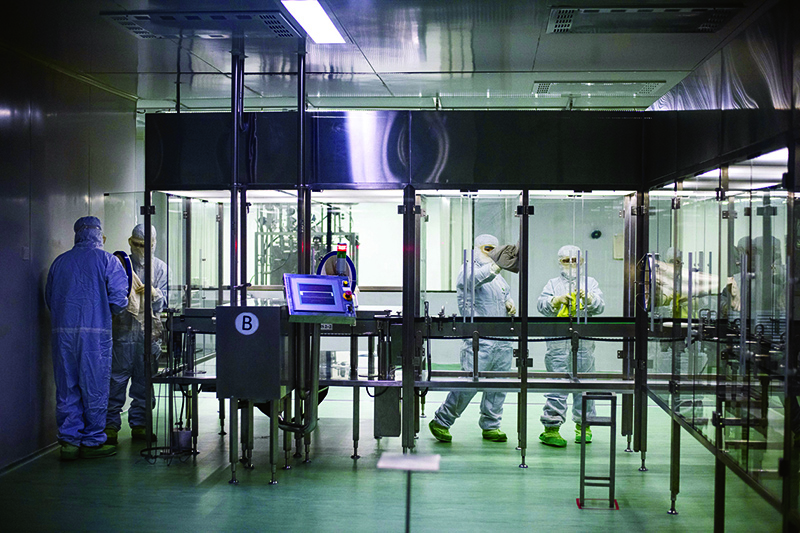
BEIJING: China is building hundreds of testing laboratories and stocking up on tests to ramp up screening for the coronavirus, even in healthy people, having all-but stamped out local transmission of the disease. China is looking to make testing universal, available in every corner of the mainland. Procurement documents and official notices show it is sharply expanding its testing capability, already the world’s largest, extending it even to rural health facilities as it looks to revive the economy after an unprecedented plunge in the first quarter.
On Monday, the National Health Commission said it would look to “normalise” nucleic acid testing
. “If they’re willing to be checked, check them all,” said the policy notice. Life is increasingly returning to normal in China, where the outbreak first emerged in the city of Wuhan late last year. Last month, Wuhan tested around 6 million people over 10 days at a cost of 900 million yuan ($127 million), an initiative some experts said largely had the benefit of boosting confidence.
Unlike many countries, tests are widely available in China. Ben Cowling, an infectious disease specialist at Hong Kong University, said he expects many organisations in China to arrange regular screenings of staff. “Testing is expensive, but perhaps not as expensive in China because the reagents and machines tend to be produced in China,” he said.
“It’s also not as expensive as local or city-wide lockdowns might be, if outbreaks became larger before being identified.”
NATIONWIDE BUILD-UP
Hundreds of bidding documents issued by hospitals and centres for disease control (CDC) in every province since the beginning of May list requirements for new testing labs, painting a picture of a fast-paced national programme.
The most expensive items are polymerase chain reaction (PCR) machines, a key testing component documents show can cost up to $99,000.
Chinese organizations bought 257 PCR laboratories in the last 30 days, according to listings on procurement platform Jianyu360, compared with an average of 21 per month in the previous 12 months.
Those figures represent a fraction of the total, as not all projects are detailed in public procurements. For over two weeks after the virus was identified in January, no hospitals in Wuhan - a city of 11 million - were equipped to conduct tests, meaning no new cases were confirmed until days before the city’s lockdown.
Most of the new labs are being installed in hospitals, and most cost between 100,000 and 3 million yuan ($15,000-$420,000). Some institutions require all equipment to be produced within China, though others call for specific foreign-made gear, including PCRs made by Switzerland’s Roche Holding AG and U.S.-based Bio-Rad Laboratories Inc.
PRICE CONTROLS ON TESTS
China has said it can produce 5 million test kits a day, and provincial governments have imposed strict price controls on manufacturers.
Hubei province, the epicentre of the outbreak, compels test makers to cut prices for bulk orders, driving them as low as 16.78 yuan for a nucleic acid test, and 12.9 yuan for an antibody-based kit, according to figures released on May 9.
Medical institutes will be barred from offering tests if they refuse to buy kits from the few companies that secured contracts at government-negotiated prices, Hubei authorities said.
China does not say how many tests it has conducted, but the figure is widely believed to far surpass other countries. By comparison, the U.S. CDC reported over 20 million tests conducted as of June 5.
“I think everyone will take the tests, even many tests,” said Lu Meiping, one of thousands of university students set to return to Beijing this month under quarantine and testing programmes. —Reuters
“No one wants to stay home.” —Reuters










